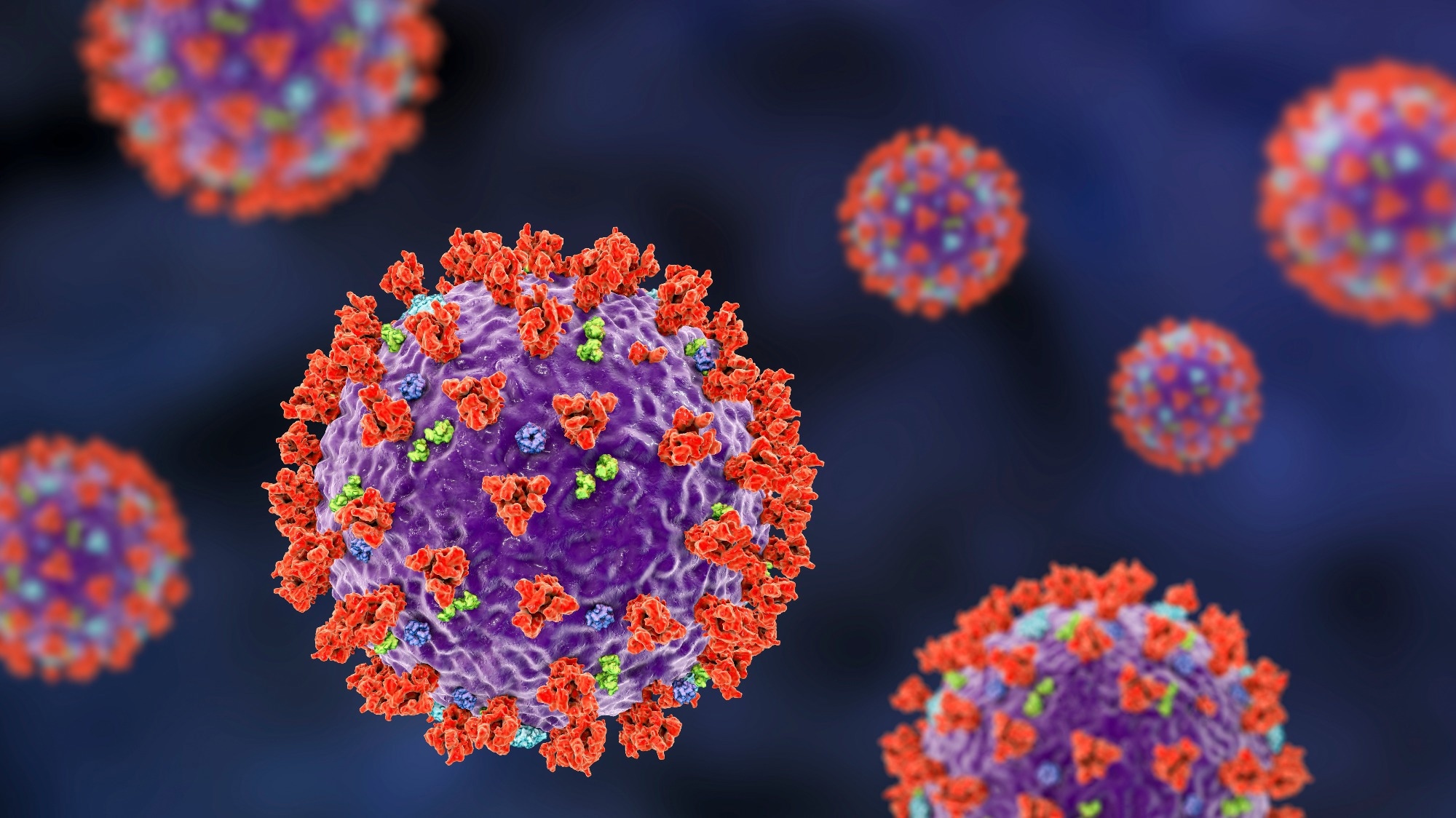COVID-19 vaccines to date have been designed to protect against the ancestral strain of severe acute respiratory syndrome coronavirus-2 (SARS-CoV-2). Recently, health authorities have advised changes in the COVID-19 vaccine design, i.e., replacement of the ancestral strain with other strains, to combat the emerging SARS-CoV-2 variants more efficiently.
The main aim is to develop a next-generation COVID-19 vaccine that can efficiently tackle multiple variants of concern (VOC), including the dominantly circulating Omicron variants. A recent Nature Communications comment article has discussed preclinical and clinical data on COVID-19 vaccine antigens that could be utilized to develop effective booster vaccines.
 Comment: The potential of Beta variant containing COVID booster vaccines for chasing Omicron in 2022. Image Credit: Kateryna Kon / Shutterstock
Comment: The potential of Beta variant containing COVID booster vaccines for chasing Omicron in 2022. Image Credit: Kateryna Kon / Shutterstock
SARS-CoV-2 Variants and Strategies to Improve Vaccine Efficacy against VOCs
Due to genomic mutations, SARS-CoV-2 has continued to evolve, and the emerging variants have been categorized as variants of interest (VOI) and VOC based on their virulence and infectivity relative to the ancestral strain.
One of the strategies to combat VOCs has been to develop an efficient booster vaccine based on predominantly circulating variants. Another alternative approach could be a selection of a potential antigen capable of producing antibodies cross-reactive to multiple VOCs.
Based on preclinical and clinical data, SARS-CoV-2 Beta (B.1.351) spike protein was selected as a potential antigen for the future COVID-19 booster vaccine. In addition, the current study has discussed several strain selection criteria for developing the next booster.
Vaccination Status of a Population
Pre-pandemic samples revealed the existence of SARS-CoV-2 cross-reactive CD4+ T cells and non-neutralizing antibodies that were effective against SARS-CoV-2 spike and nucleocapsid. Nevertheless, there has been conflicting evidence about whether these antibodies could prevent severe SARS-CoV-2 infection.
Over time, a more complex and heterogeneous immune status was observed in the population based on prior infection and vaccination status. The primary function of the booster vaccine would be to prevent the potential increase in COVID-19 cases in the autumn and winter of 2022. Hence, booster vaccination must increase the intensity and breadth of antibodies to protect individuals against the existing and newly emerging VOCs.
A booster vaccine design may differ from the COVID-19 vaccines developed during the pandemic's early phase. This observation is based on several preclinical and clinical studies that revealed that inactivated vaccines triggered a robust immune response in naïve individuals but not in people with pre-existing immune responses. However, other COVID-19 vaccines, such as mRNA-1273 and BNT162b2, exhibited significant efficacy as primary vaccination and boosters.
The Efficacy of Beta-based Booster Vaccines
Two key determinants that broaden the immune response elicited in people with pre-existing immunity are spike protein sequence and design. Non-human primates challenged with an ancestral strain spike antigen, Beta variant-containing mRNA, and adjuvanted recombinant protein vaccines exhibited broad cross-reactivity across SARS-CoV-2 VOCs and SARS-CoV-1. Notably, a phase 2/3 clinical trial of a bivalent mRNA vaccine encoding spike antigen of Beta variant and D614 ancestral strain also revealed higher cross-reactive immune responses against VOCs even after six months of a booster vaccination.
A clinical study in France by pharmaceutical and healthcare company Sanofi compared the efficacy of monovalent recombinant protein prototype and Beta-variant booster vaccines with AS03 adjuvant to the BTN162b2 mRNA prototype booster vaccine. This study revealed that the Beta-variant booster vaccine exhibited broader cross-reactive neutralizing antibodies against VOCs, including the Omicron strain. This finding indicated that the modified antigen, not the adjuvant, increased the vaccine's efficacy.
Importantly, compared to the control group, the Beta booster vaccine candidate enhanced Omicron BA.1-specific neutralizing antibody titers manifold. A comparison between Beta-booster vaccines and Omicron-containing booster vaccines is not available. Nevertheless, in the future, such clinical studies must be considered. The non-human primate model revealed that mRNA vaccine based on the Omicron spike sequence did not significantly boost against Omicron-specific titers. In contrast, another clinical trial showed that the Omicron BA.1 containing bivalent mRNA-1273.214 booster vaccine triggered a higher Omicron-specific antibody titers level compared to baseline. These findings challenged the conventional knowledge of increasing valences in a vaccine formulation to enhance breadth.
Cross-Neutralization by Beta-Variant Booster Vaccines
Previous evidence has shown that choosing a more dominantly circulating strain for the influenza vaccine was not the best solution. Therefore, strain selection must be based on the strain eliciting the strongest antibodies against the predominant circulating strain that causes symptomatic and severe disease.
Over the past seven months, the Omicron variant has been associated with significantly lower cross-reactive antibody titers than other VOC infections. Additionally, the spike protein of the Omicron strain has exhibited reduced antigenicity. Therefore, the immunodominance pattern must be studied to design an effective COVID-19 booster vaccine. The Beta variant containing substitution in spike sequence at positions K417N, E484K, and N501Y provided a new antibody epitope that elicited broader cross-neutralizing immunogenicity, which was effective against multiple VOCs.
The authors recommended the development of a SARS-CoV-2 booster vaccine based on the spike of the Beta variant. This vaccine could provide broad-ranging cross-neutralizing antibodies that are expected to be effective against VOCs, including Omicron.